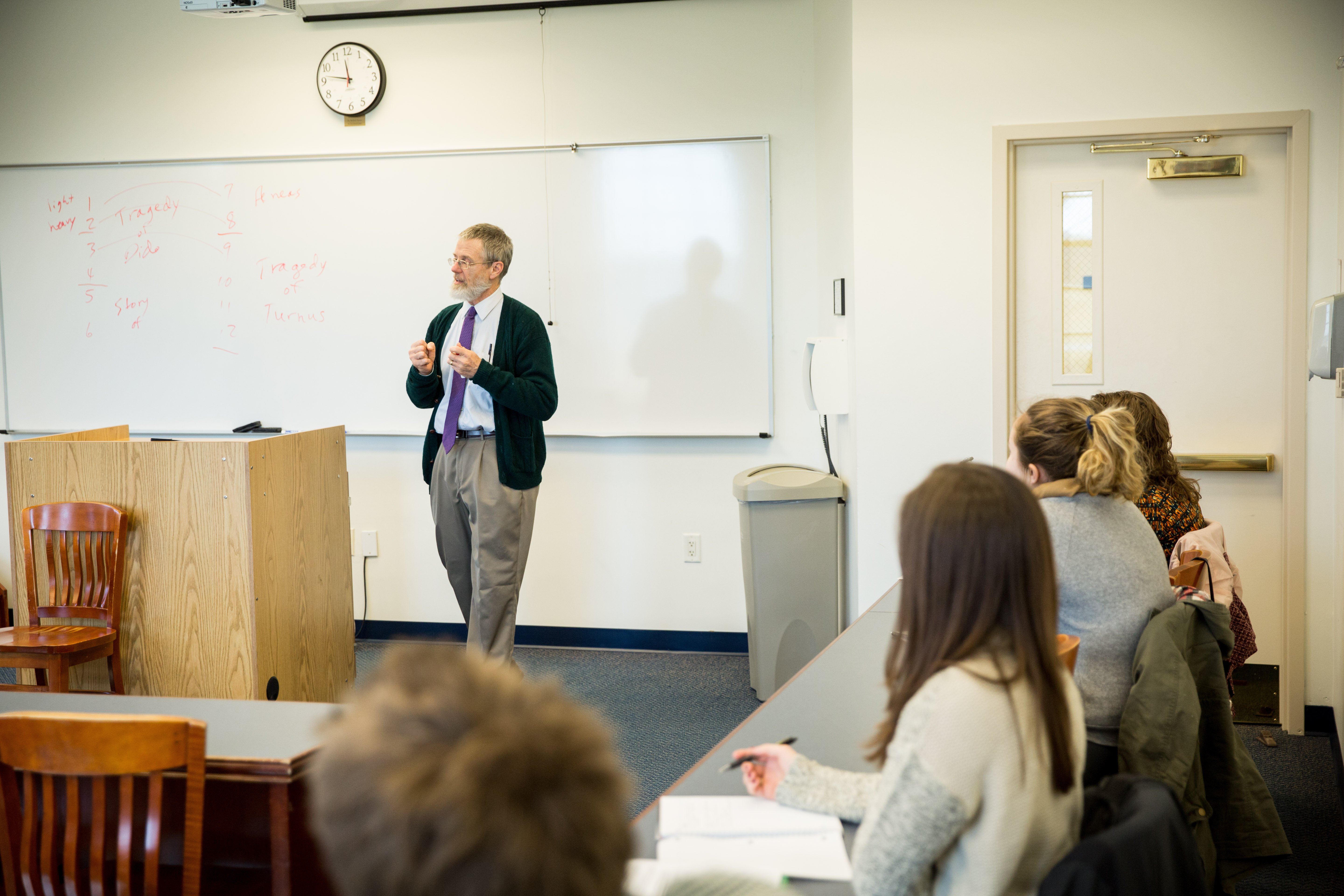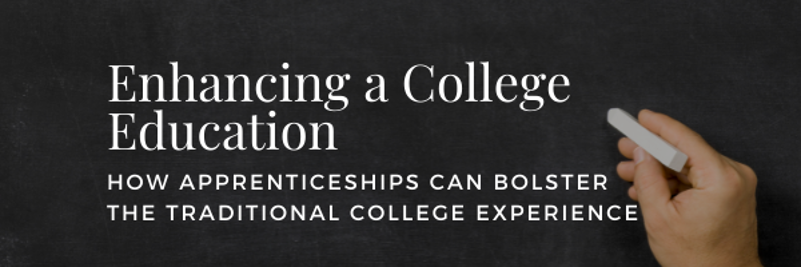
A “liberal arts education” is associated with the pursuit of knowledge for its own sake and is generally contrasted with the practical, job-focused training of “vocational education.” Actually, though, liberal arts education has historically been complementary with a very practical approach to on-the-job training: the apprenticeship methodology, which is a distinctive of Patrick Henry College.
The early universities adopted this model in teaching students the arts and sciences, as reflected in the terminology and the system of degrees that are still used today.
Read more about the history of apprenticeships here.
The apprenticeship requirement, in which students creatively apply their knowledge and understanding in a real-world context, corresponds to rhetoric. Thus, a Patrick Henry College education is unusually comprehensive, rich, and effective.
Apprenticeships at Patrick Henry College
Apprenticeships at PHC are integrated with the school’s classical Christian liberal arts educational philosophy. Though grammar, logic, and rhetoric are foundational subjects—the Trivium of the classical liberal arts—they also each carry their own pedagogical approach (learning, dialectic, and performance) and can serve as a conceptual framework for a comprehensive education (knowledge, understanding, and application). – PHC's Philosophy of Education
Apprenticeships represent the “rhetoric” stage of the liberal arts. Students, having learned the “grammar” of their disciplines and understanding its “logic,” go on to apply what they have learned in the “rhetoric” of their own creative performance in the field.
Furthermore, because PHC students have been equipped by the core liberal arts curriculum, they tend to have a strong knowledge base (grammar), are skilled in analysis (logic), and can express themselves well in speaking and writing (rhetoric). Thus, as they move into their major programs, where the Apprenticeship Methodology is featured, they are well-prepared to excel in their future callings.

At Patrick Henry College, critical thinking and an ability to find creative solutions are first developed in the classroom. Because of PHC’s unique size, students engage directly with professors who challenge them to think carefully about their opinions and preconceived notions. Through papers, in-class participation, and peer interactions, students will be challenged to think creatively and dynamically.
When the student becomes an upperclassmen, these honed skills will then be applied in the context of apprenticeship by means of an internship or some other individually-based test of their skills. Sometimes this looks like working at an organization like WORLD Magazine or The Heritage Foundation. At other times, it can look like undertaking a directed research writing project (DRW).
All graduates from Patrick Henry College will have successfully completed an internship in their field; ensuring that when they graduate, they will already have had experience putting their skills to the test.
Find out why PHC believes so strongly about this method of education! You might be surprised. Click the image below.




